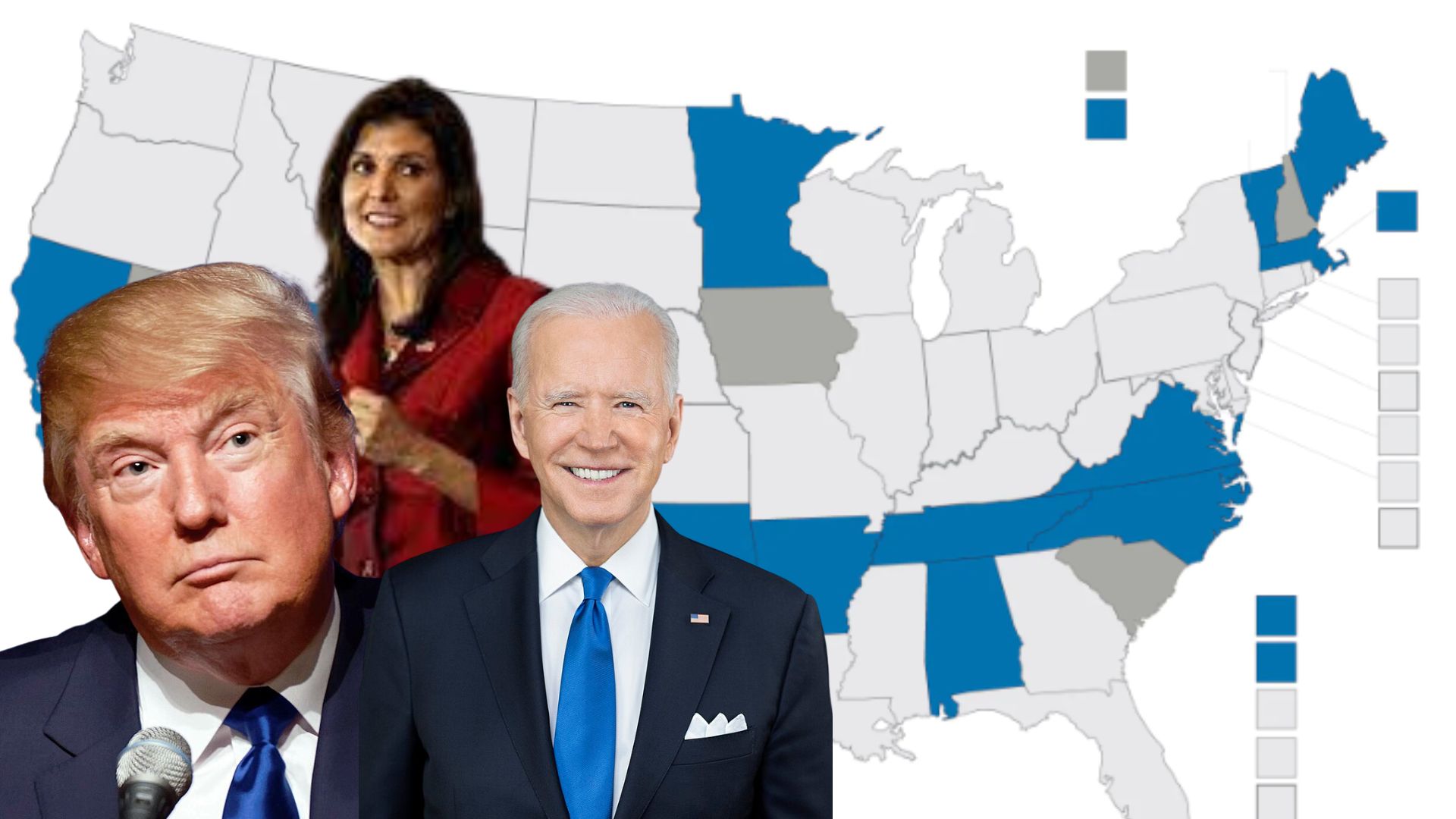As one of the crucial dates on the United States election calendar approaches, March 5th marks ‘Super Tuesday’. Millions of voters are expected to participate in presidential primaries and caucuses across more than a dozen states.
The election agenda encompasses races for both chambers of the US Congress—the House of Representatives and the Senate—as well as various other contests.
While President Joe Biden faces minimal opposition within the Democratic ranks and is virtually assured of securing the party’s nomination, Super Tuesday’s Republican presidential nomination race may signal the conclusion of former United Nations Ambassador Nikki Haley’s campaign.
Being the final significant contender challenging the frontrunner, former President Donald Trump, Haley’s endeavors have faced difficulties in eroding Trump’s strong grip on the party.
Here’s everything you need to know about Super Tuesday.
When does Super Tuesday occur?
This year, it is scheduled for Tuesday, March 5th.
What defines Super Tuesday?
Super Tuesday distinguishes itself as the day when the most states hold their presidential primaries and caucuses, serving as a pivotal milestone in the electoral process. During these state-level competitions, candidates associated with the two major political parties, Democrats and Republicans, aim to accumulate the required delegates to secure their party’s nominations.
Delegates assume a crucial role as representatives of their respective states at the party conventions, where they vote for the nominee based on the outcomes of the primaries and caucuses.
In this year’s upcoming Super Tuesday races, a significant 874 Republican delegates will be up for grabs, constituting approximately 36 percent of the total available. To secure the Republican nomination, a candidate must obtain a minimum of 1,215 delegates out of the overall 2,429.
On the Democratic side, Super Tuesday holds sway over 1,439 delegates out of the party’s total count of 3,979, underscoring the significance of these contests in shaping the path toward the Democratic nomination.
Which states in the US are voting on Super Tuesday?
Voting will take place in fifteen states across the United States: Alabama, Alaska, Arkansas, California, Colorado, Maine, Massachusetts, Minnesota, North Carolina, Oklahoma, Tennessee, Texas, Utah, Vermont, Virginia. Additionally, the territory of American Samoa will also be voting.
What is the origin of the term Super Tuesday?
The origins of the term are somewhat unclear, with indications pointing back to at least 1976 when ‘Super Tuesday’ referred to the final significant primaries in June—California, New York, and Ohio. However, it is widely accepted that ‘Super Tuesday’ took its modern form in 1988. In that year, a coalition of Democrats in southern US states opted to front-load the presidential primary process following Republican President Ronald Reagan’s decisive victory four years prior against Democratic candidate Walter Mondale. Their strategy involved holding simultaneous primaries early in the election cycle, aiming to exert greater influence on their party’s selection and ensure the nominee’s viability in the American South. Despite the unsuccessful outcome of the 1988 initiative, Super Tuesday persists as the day when a majority of US states conduct their primary elections.
What is the significance of Super Tuesday?
The significance of Super Tuesday lies in the allocation of approximately a third of each party’s delegates, crucial in determining their respective presidential nominees. A robust performance on this day can inject vitality into a presidential campaign, attracting increased financial support and building momentum. Conversely, a lackluster outcome can halt a campaign’s progress abruptly. Caitlin Jewitt, an associate professor of political science at Virginia Tech, highlighted the importance of robust funding, organization, and name recognition for candidates to fare well across the diverse states participating on Super Tuesday. The simultaneous nature of the contests intensifies the need for candidates to exhibit strength on multiple fronts. The aftermath of Super Tuesday often solidifies a frontrunner, leading to the withdrawal of many other contenders from the race. In the 2020 Democratic race, for instance, Joe Biden’s impressive showing on Super Tuesday, securing victories in 10 states, propelled him into a two-man competition with Senator Bernie Sanders.


















